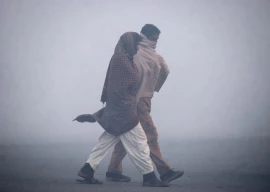Middle-class Indian moviegoers are set to squirm in their seats this week as a new film explores how wealthier families treat the household staff who answer to their every whim.
Delhi in a Day tells the story of an idealistic British traveller who finds he is stuck in a stifling and snobbish home where poorly-paid and vulnerable domestic workers are taken for granted and casually humiliated.
The family taunt and bully their staff, who – in a scenario familiar to millions of urban Indian homes – work around the clock cooking, cleaning and completing an endless list of other duties expected of modern-day servants.
Director Prashant Nair says his film uses flashes of comedy to shine a light on the uncomfortable realities of contemporary life in a country that has been transformed in many ways by two decades of economic growth.
“The rich hire the workers and expect them to do everything,” he said. “They enjoy the right to insult, abuse them and even accuse them of stealing. Domestic workers are always the first suspect.
“I wanted to show how the sole aim of the worker is to appease their masters as they cope with a constant sense of insecurity and live with the fear of being fired for the smallest error.”
Set in a sprawling bungalow in the leafy part of New Delhi, Nair’s film relates how the British visitor – played by Lee Williams – has his dreams of a “spiritual journey” in India dashed by a scandal over stolen money.
Activist Ramendra Kumar, who heads domestic workers’ union Delhi Shramik Sangathan, hopes the movie will boost the campaign for better legal protection when it is released in 65 cinemas nationwide on Friday.
“A factory worker can file a court case against the employer to claim a pension and other benefits but a domestic worker cannot make any such claims,” he said.
Since 2010, his union has registered more than 400 complaints by domestic workers in New Delhi who say they were beaten or abused for overcooking vegetables, forgetting to wash dishes or over-sleeping.
Nair says such attitudes exist widely across India, and that many families live lives of luxury that depend on the exploitation of household staff.
“At one level the rich try to be so polite and display all their etiquette at high society parties in New Delhi, but at home their entire tone changes,” he said.
Published in The Express Tribune, August 23rd, 2012.
COMMENTS (6)
Comments are moderated and generally will be posted if they are on-topic and not abusive.
For more information, please see our Comments FAQ

1726117332-0/Megan-Thee-Stallion-(1)1726117332-0-165x106.webp)



1735200973-0/Untitled-design-(6)1735200973-0-270x192.webp)

















@dpd:
a lot of marxist theology, which i abhor, but sadly it is the truth.
@RazaKhan - The true meaning of stealing. When one steals millions to satisfy one's greed for wealth - this person is greeted normally on a daily basis as a normal person in our society. On the other hand , when a poor person steals to feed his family or to provide the family with a little bit of luxary, he is known as a common thief in our society. If and when caught he is jailed. The one that stole millions is never refered to as a thief. He is seldom caught and when he is caught a clever lawyer will always be there to defend him. Just a thought... can you imagine what the maid's wages is, can you imagine living an earing with such a wage???????
British traveller who finds he is stuck in a stifling and snobbish home where poorly-paid and vulnerable domestic workers are taken for granted and casually humiliated.
A Brit talking about equality and snobbery????? Flop Movie
im sure it'll be an exagerated one-sided flick!!
But they do steal!
I wonder if there is any difference between the treatment of domestic servants by Indians, Pakistanis, Bangladeshis and Sri Lankans. I suspect the treatment of servants by Saudi Arabians and Kuwaitis is even worse.